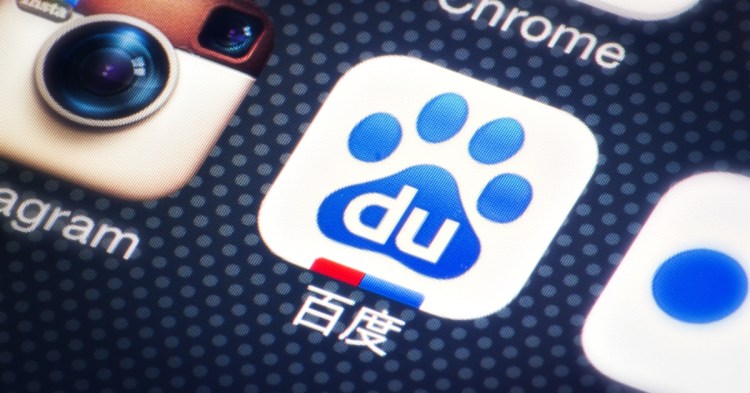Hot on the heels of Facebook announcing M — its AI-powered personal assistant that will live inside the Messenger chat app — at the end of August, China’s Internet search giant Baidu on Tuesday unveiled something similar in Beijing.
Named “Du Secretary,” Baidu’s virtual assistant will live within the latest version (6.8) of its flagship Mobile Baidu search app. The announcement was made at the 10th annual Baidu World conference in the country’s capital.
The company said:
Baidu’s [assistant] processes requests for an ever-broadening range of services, like ordering takeout delivery or buying movie tickets through simple, natural dialogue. It also makes smart recommendations for services based on information it learns through interacting with the user.
While Google still ranks first overall in the Alexa rankings, Baidu is fourth — a fact little known by many outside China. Facebook and YouTube are second and third, respectively, and Yahoo is fifth. Baidu is seeing over one billion visitors per month, according to data from SimilarWeb, and brought in revenue of close to $8 billion last year.
“In the past, only the privileged few — those in very senior positions in companies or other organizations — had personal assistants,” Robin Li, founder and chief executive of Baidu, said at the event. “With Duer, every ordinary person can now have a powerful personal assistant who can provide valuable life services — for free.”
Baidu had announced in June that it is investing $3.2 billion to build up its online-to-offline (O2O) services — like ordering food or a taxi through an app — and the virtual assistant announced today ties closely into that.
The company admits that such requests are comprising “a growing percentage of overall search queries,” so it’s clearly keen to keep pushing the envelope in terms of making the space and experience more efficient. It says the AI will incorporate factors like location, real-time awareness of promotions and offers, and personal preferences.
“In the current build, it can fulfil requests for restaurants and restaurant food delivery, pet-related services like grooming, and movie theater ticket purchases,” Baidu said. “In the near future, it will expand to include a wide range of services including ride hailing, housekeeping, manicures and pedicures, education, healthcare, travel, designated driver services, and more.”
In a comment that highlights the company’s ongoing push into O2O — and its commitment to building up partnerships and services around that opportunity — Baidu added:
Once a merchant’s services are integrated into one of Baidu’s platforms — search, maps, or an O2O service like Takeout Delivery or Nuomi — [the assistant] will direct appropriate specific user requests to that merchant, generating business and helping them to better understand their customers.
Baidu’s Beijing event also saw Uber founder Travis Kalanick take to the stage as a speaker. The ride-hailing company on Monday confirmed an additional $1.2 billion in fresh funding for its China entity, while local rival Didi Kuaidi is expected to soon close a $3 billion round.
While the AI-powered virtual assistant space is still in its infancy, Baidu’s entrance with an offering of its own is frankly, long overdue. Google, Apple, Microsoft, and now Facebook are all making major plays in the space as they predict a huge opportunity for ecommerce transactions, among other things, to flourish.
Now that Baidu is here with Du Secretary, it feels like China has really entered the picture in a big way.


